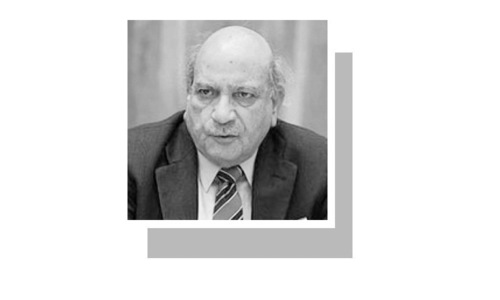WITH support from the National Counter Terrorism Authority, the Islamic Research Institute (IRI) of the International Islamic University launched a ‘national narrative’ in January 2018, that had the endorsement of prominent members of the clergy. The narrative was called ‘Paigham-i-Pakistan’.
A prominent feature of that document is the fatwa, or religious decree, against terrorism, suicide bombing and any individual issuing the call for ‘jihad’ (considering that such a call is the state’s prerogative), along with many other related proclamations.
The joint declaration and the decree, initially signed and endorsed by more than 1,800 ulema, have been acclaimed as a great step forward to stop terrorism in the name of jihad and implementation of the Sharia. So far, diverse communities, in particular students and youth, have been engaged in large numbers across the country for the promotion of Paigham-i-Pakistan, as claimed by a senior IRI representative at a recently held seminar in Islamabad that focused on the ‘new national narrative’.
Earlier, the national narrative had been one based on certain religious notions and nurtured during the last many decades through a range of constitutional, legal and educational measures. It involved a sort of state-sponsored process of Islamisation, to promote some strategic objectives deemed vital at that time.
Read: The roots of extremism
A crucial question asked in the Paigham-i-Pakistan document is “whether Pakistan is an Islamic or an un-Islamic state? Further, can a state be declared un-Islamic and its government and armed forces as non-Muslim if the Sharia is not implemented in its entirety?”
In the absence of long-term measures with a proper implementation plan, the narrative on militancy cannot change.
This could be read in several ways. For instance, one could deduce two points from the question above. First, it appears to indicate that to be an Islamic state (the definition is open to debate) was the very purpose of the foundation of Pakistan. Second is the implied acknowledgment that this objective is still unfulfilled. One wonders whether the scope of this question itself can be viewed as providing validity to the demand for an ideal Islamic state by any means possible — what, in fact, the banned TTP claims it wants to achieve. Moreover, to some it may come across as somewhat apologetic — as if requesting a halt in the militants’ activities until the government achieves the objective of implementing the Sharia. Such phrasing could come across as the antithesis of what the document may actually intend.
The simple fact is that no matter how much and for how long one tries to make or prove Pakistan an Islamic state, there will always be groups declaring it ‘un-Islamic’, according to their own specific interpretation of the Muslim faith, thus ‘justifying’ to themselves a continued struggle towards a ‘real’ Islamic state.
For example, as per a common understanding of religious law, and especially when it is interpreted by militant religious groups, a state can hardly be said to be conforming to religious edicts if it is not ensuring that it has an interest-free economy, it is not implementing capital punishment, it is not making the veil obligatory, it is not strictly segregating gender roles, it is not banning activities such as theatre, drama, film and music, it is not setting up a department to ‘stop’ vice and ‘spread’ virtue, it is not closing barber shops that shave off men’s facial hair, and it is not cutting off trade and cultural ties with non-Muslim countries generally, and in particular those that have majority Hindu and Jewish populations. The proponents of such a state also recommend that measures be taken to ensure the dominance of the Muslim faith all over the world.
However, can a time frame for fulfilling such conditions be given, even to temporarily pacify extremist groups that want to enforce their strict version of religion in the country? Would an assurance based on this make them halt their ‘activities’ while waiting for the desired outcome?
The current upsurge in the terrorist incidents in Khyber Pakhtunkhwa, including the erstwhile tribal areas, provides a blunt answer.
Editorial: FATF & militancy
Terrorism-related incidents saw an increase of 42 per cent in September 2022 compared to August 2022. A horizontal escalation is seen, with a shift in terrorism from North Waziristan, South Waziristan, D.I. Khan, Tank, and Bajaur districts to Lakki Marwat, Khyber, Swat, Peshawar and Kurram districts. The Khyber district remained the most affected, with the greatest number of terrorist incidents, followed by Lakki Marwat, South Waziristan, Swat and Kurram.
A declaration or a fatwa in the absence of long-term measures with a proper implementation plan is insufficient to change the current narrative established through decades of consistent promotion and propagation. If anything, it will further reinforce the problematic objectives of the existing extremist narrative. A translated verse from Mir Taqi Mir may explain this: “Mir is so naïve that he takes medicine from the son of the same quack who make him ill in the first place”.
Moreover, this is not new either — many ulema claim to have been saying the same thing for a long time. Some of them have even sacrificed their lives for what they had to say, like Maulana Hassan Jan, Dr Sarfraz Naeemi and Dr Farooq Khan to name but a few. In essence, the letter and spirit of the so-called ‘new narrative’ are strikingly similar to what had already existed in our religious and Pak Studies schoolbooks.
The issue it seems is that of the over-politicisation of religion without differentiating between compulsion and human freedom. Any misplaced idealism over pragmatism and appreciation of universal human rights and moral values can render us unable to understand the demands of our belief system.
No positive change can be realistically expected to come about in our condition without the willingness to improve our conception of self and our worldview realistically.
The writer is a consultant and researcher working on social issues, including building resilience and cohesion in stressed communities.
Published in Dawn, September 29th, 2022














































